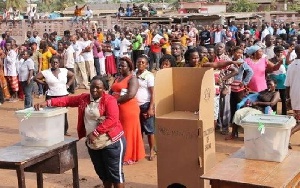A study by iRIS Research Group has revealed that independent presidential and parliamentary candidates are more likely to do well in the three regions of the north in the upcoming elections on December 7.
The study was conducted by examining the performance of third-party presidential aspirants and independent parliamentary candidates in Ghana using historical elections data from 1996 to 2016.
“Both third-party presidential and parliamentary candidates are more likely to perform better in the three Northern Regions than other parts of the country,” the Accra-based research firm states.
The study also found that the performance of third-party presidential candidates has been on the decline over the past six electoral cycles.
“Trendline analysis indicates third parties have been dropping an average of 31,000 votes per election from a base of about 365,000 votes since 1996,” the study added.
Also, the researchers at the iRIS Research Group say third parties need to gain a minimum combined vote share of more than 3% to have a chance at influencing presidential elections, sending it into a second round.
“The likelihood of a presidential election going into a run-off or an incumbent losing depends on the combined impact of whether the incumbent or challenger is a new candidate; the incumbent or challenger is popular or charismatic; and if there is a popular third-party candidate,” the study noted.
Read the full report below.
Click to view details



Politics of Wednesday, 18 November 2020
Source: --

















